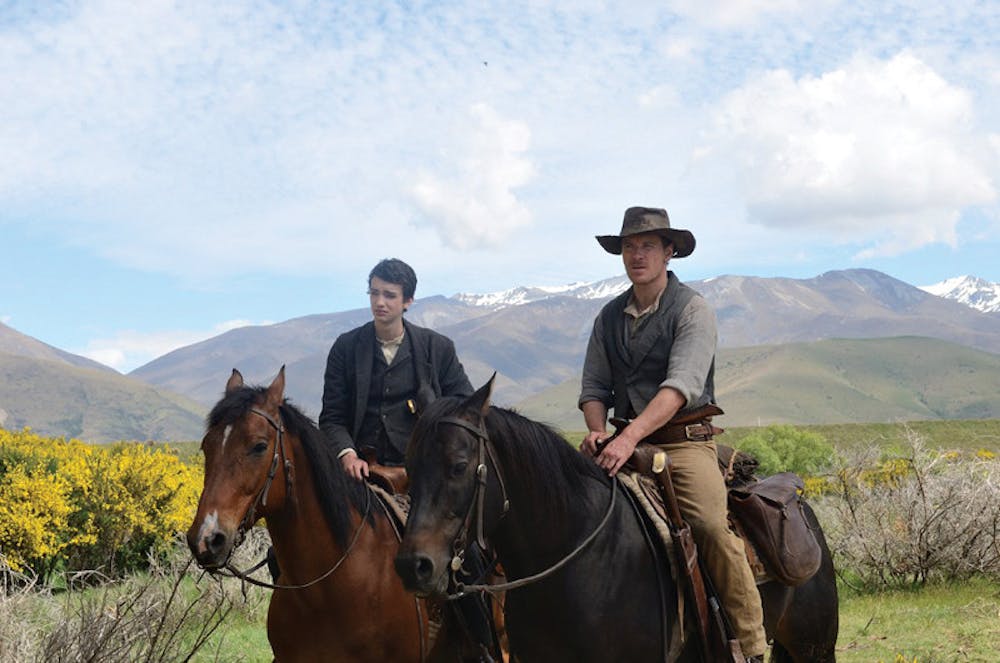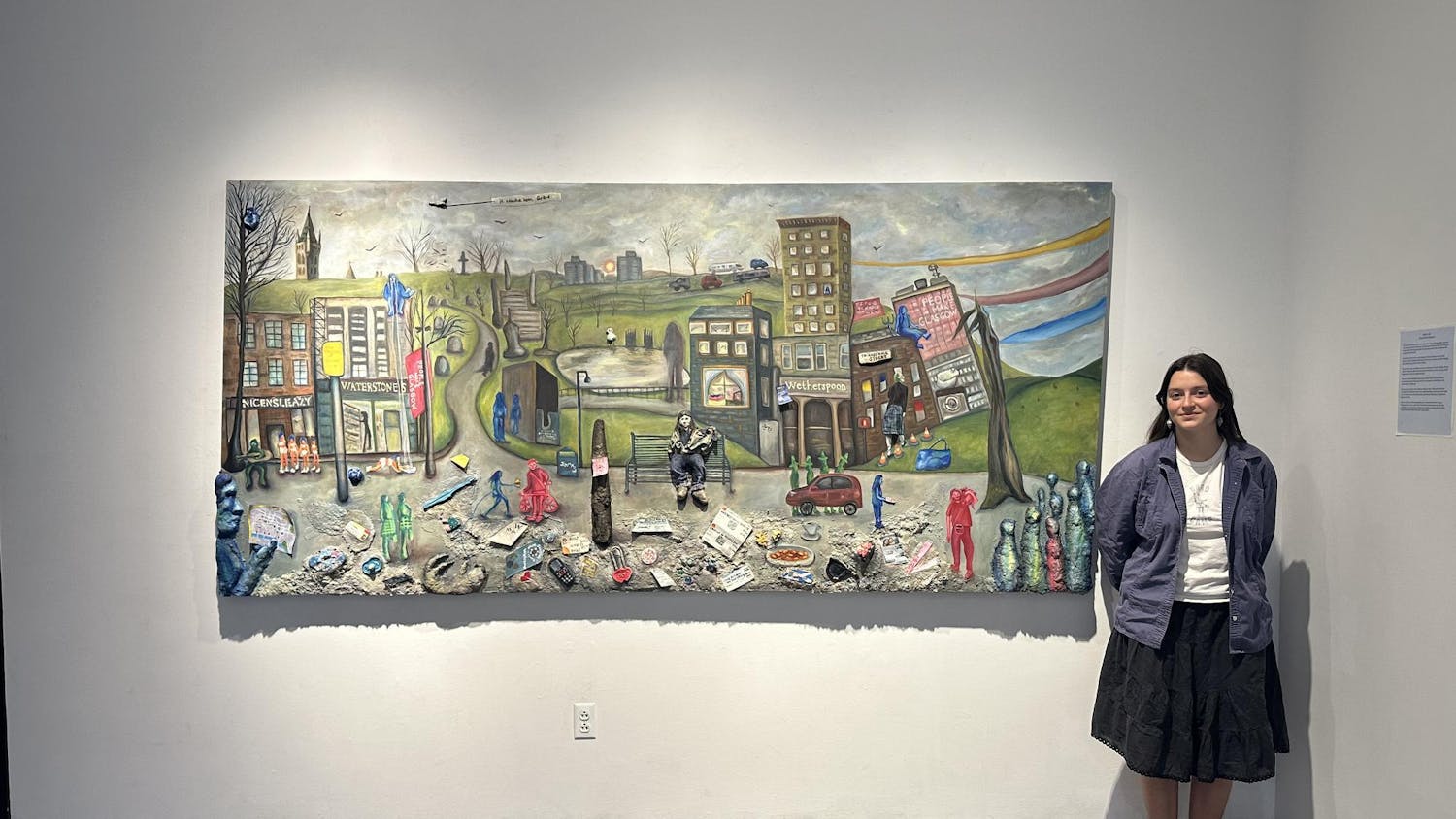The artfully absurdist reformulation of Western film cliches is sure to confound anyone who expects a typical Western from “Slow West,” a film directed by John Maclean.
Students were treated to an early screening at Avon Cinema Thursday as part of the Ivy Film Festival.
The film’s premise is simple enough: Wide-eyed, naive Scottish boy Jay Cavendish, played by Kodi Smit-McPhee, traverses 1870s Colorado in pursuit of the woman he loves. He joins forces with the tough-hearted Silas Selleck, played by Michael Fassbender, who takes up the classic Western style of brutish, dry-humored and monosyllabic charisma. Though Silas’s ulterior motive for following Jay to his beloved is a bounty over her head, the steely man’s outlook predictably softens toward his companion as their treacherous journey unfolds. Apart from some clever deviations, these protagonists are solidly identifiable types. Similarly, the landscape they cross is skillfully dramatized — a savagely beautiful yet ultimately derivative vision of the Wild West.
The film’s allure lies in its existential interrogation of its own paradigm. What starts as a straightforward plot becomes repeatedly interrupted by outbursts of satiric humor, philosophical digressions supplied by a cast of surreal background characters and dumbfounding violence that is self-consciously and bewilderingly pointless. These jarring and sometimes distressing elements eventually prove not to be interferences at all, but rather the heart of the film. Its mounting absurdism tears into the fragility of its characters and the human beliefs they represent.
But the crucial question we ask of absurdism is whether it has a meaning. Generally, the characters of “Slow West” remain abstractions. Investigations into their psyches never reach considerable depth before they are cut short. Yet there is a palpable and unshakable melancholy throughout the film that moves us, if not to empathize with its figures, then at least to mourn their existential conditions. The last scenes are at once the most absurd — the most brashly defiant of our expectations — and the most wistful and poignant. In the end, “Slow West” refuses both to fulfill a classic Western’s promises and resolve its own moral dilemmas. The ideals that it throws into question are neither validated nor destroyed. They are ridiculed, honored, shot at, then finally shrugged at and tucked in a drawer.





